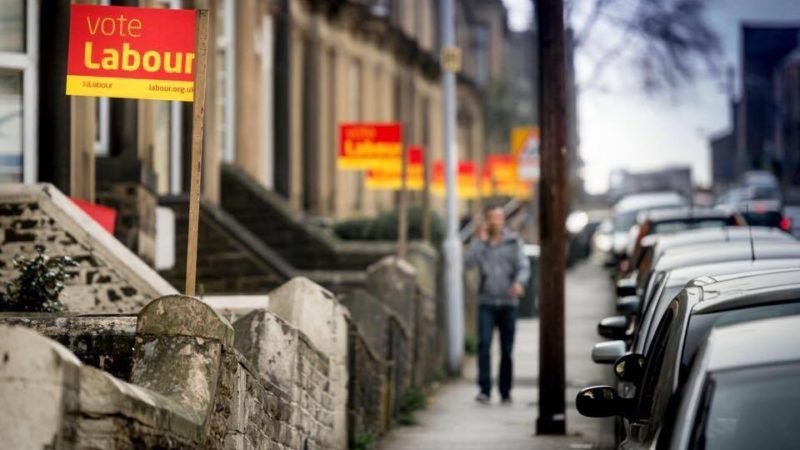

Politics needs to be more representative. Whilst the 2017 general election saw the election of the most diverse parliament ever – 208 female MPs were elected, 52 BAME MPs, 45 LGBT MPs and five MPs with a disability, figures that represent a real improvement in how diverse Parliament is – they also serve as a reminder of how far we have to go. Women still make up less than a third of all MPs. Ethnic minorities make up 14 per cent of the general population and just eight per cent of parliament.
These figures also hide other metrics which tell a far bleaker story. Around 30 per cent of MPs are privately educated, even though only 7 per cent of the public attended private school. Local government figures are even more stark: of all councillors, 67 per cent are male, 96 per cent white and the average age of a councillor is over 60, according to the Local Government Association’s 2013 census.
I chaired an event in parliament with Ed Miliband and Cat Smith, shadow cabinet minister for voter engagement and youth affairs looking specifically at this question of how we can make politics more representative.
Looking the part
Why does this matter? Miliband put it simply: “it matters because…the Labour party needs to look like the country it intends to serve”.
People deserve representatives who understand their lives. And if they have not lived similar lives to yours, it is hard to guarantee that they will understand them. And if at least some of your representatives do not understand your life, then how can they represent it? Put simply, they cannot. So, for those without representation, they find themselves in the unfortunate situation where their voices are not heard. This has all kinds of negative consequences. It can lead to apathy and even anger. Falls in the proportion of the population voting, and rises in the number of extreme parties and candidates, is, I think, reflective of this trend.
The election pointed to another way. The sudden nature of the election, and the circumstances under which it was held, meant that the most diverse field ever was put before voters. And they were put before voters at a time where frustration was pushing people towards a desperate desire for change more than towards silence or destructive protest. Jeremy Corbyn reflected this mood well, saying the 2017 general election “unleashed and unlocked something, giving hope to millions of people that another world was possible”.
Winning the next election
But Labour did not win the last election. And if they are to win the next election, they will need to go that last mile in addressing people’s frustrations and take representation even further. Because representation is not about tokenism, it’s about getting authentic voices that can speak to people’s concerns. As Brenda Hale, recently selected to be the next president of the Supreme Court, stated: “excellence is important but so is diversity of expertise”.
Diversity should be understood as a key factor contributing to candidates’ talents, to their insights, to their expertise. Diversity is not just some gleeful celebration of difference. So, when people talk about selecting on merit, picking “the best person for the job”, they should be reminded that diversity is about exactly that: ensuring that people of great merit are not overlooked.
During our session in parliament we reflected on how challenging it is to increase representation in the Labour party and in public service more generally. A closer look at trends within the Labour party and its candidates is indicative. Labour is trying to be more representative at a time when the social institutions which guaranteed a diverse Labour movement, like the unions, like old blue-collar jobs, are undergoing fundamental transformation, or often just fundamental decline. The steps taken to address this shrinking of the pool of talent, such as the Future Candidates Programme, which was established by Miliband on his election to the Labour party leadership in 2010, struggle to address the scale of societal shift that has to some extent diminished diverse representation in the Labour party.
Nurturing diverse talent
The problem continues with nurturing the raw talent that many would-be representatives from a diverse background are made of. Smith reflected on how many Tories have been forged in the furnace of public schools, and however bad a job they have done of representing the country, their confidence remains unabated. This is not the case with candidates from humbler beginnings. People with diverse backgrounds need to be confident of how useful their experience is, and how their insights represent a key political asset too.
Again, programmes like the Future Candidates Programme, but also a whole range of Labour and cross-party programmes to encourage people to become representatives, struggle to address this gap. Nurturing is time intensive and long term, and it’s very difficult for support programmes to be so long term. Instead, good quality nurturing ends up going to those who can afford to do a low or no-paid internship with a politician, or who are lucky enough to become a special adviser.
Unleashing grassroots support
We spent half of our session in Parliament looking at what shape a solution might come in. What was clear is that there is a definite role for formal support programmes and indeed, programmes like the Future Candidates Programme should be rolled out again (since the event the Labour party has confirmed that a new iteration of the programme, which ceased in 2013, will be rolled out in advance of the next general election).
But even if top down programmes can identify diverse talent, they can only go so far to nurture it. Which is why attendees at the event, nearly all of which had taken part in the Future Candidates Programme, came up with a different approach. Nurturing future MPs should be a grassroots activity as well, drawing on the range of experience and skills that so many Labour members have.
It is the only way that a scalable, sustainable solution can emerge, especially in light of the Labour party’s large membership which currently stands at over 500,000.
The Future Candidates Programme reflected this challenge. Whilst participants received really useful upfront training, for many in a residential weekend, it was difficult to keep up the quality of support beyond that. For example, people were allocated mentors but most met their mentor just once at the same time as twenty other mentees.
With a peer-led approach, the potential for ongoing high-quality support is so much greater. Even in our small session, we quickly identified people in the room, in our networks or over social media, with decades of experience of mentoring including peer mentoring, or who were accredited Toastmasters that could deliver public speaking training. We agreed to be the change we wanted to see and to roll out mentoring and training as soon as possible, starting with an unofficial event at Labour’s Party Conference in September.
The people in that room were just the tip of the iceberg. The success of Momentum shows that grassroots models can work well and fast. Once we roll out a grassroots model to identifying and nurturing future candidates from across the Labour movement drawing on other Future Candidates alumni and the broader Labour family, we will be ready to properly serve our diverse country in no time at all.
Peter Babudu is a candidate for council elections in Peckham in south London next year. He is also an alumni of the Future Candidates Programme.




More from LabourList
‘Labour’s quiet quest for democratic renewal’
‘Labour promised to make work pay. Now it must deliver for young people’
‘Council Tax shouldn’t punish those who have the least or those we owe the most’